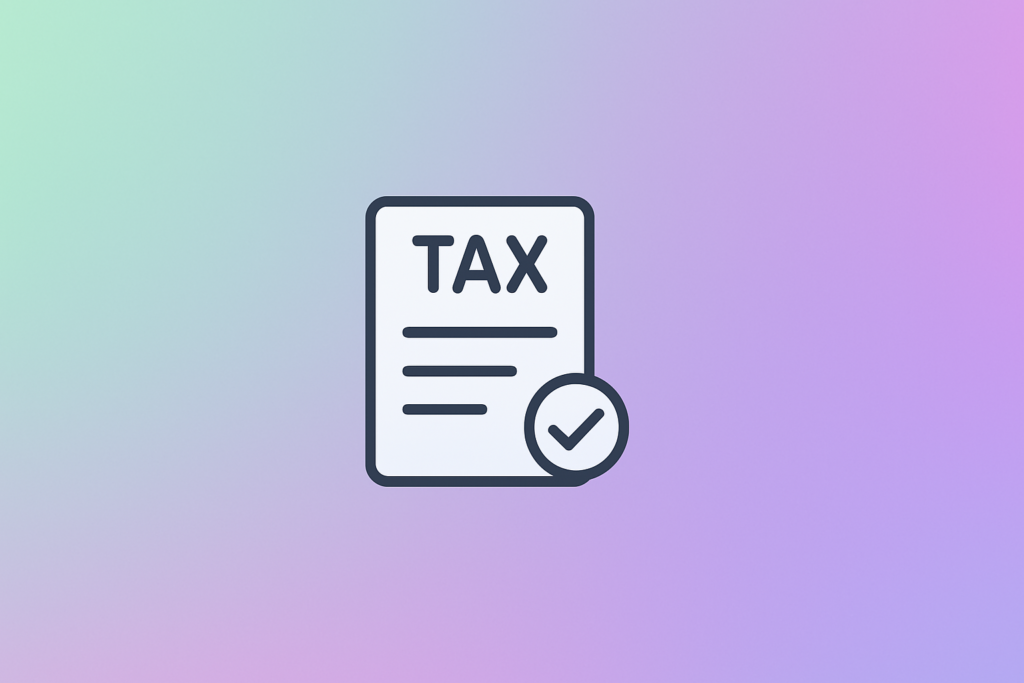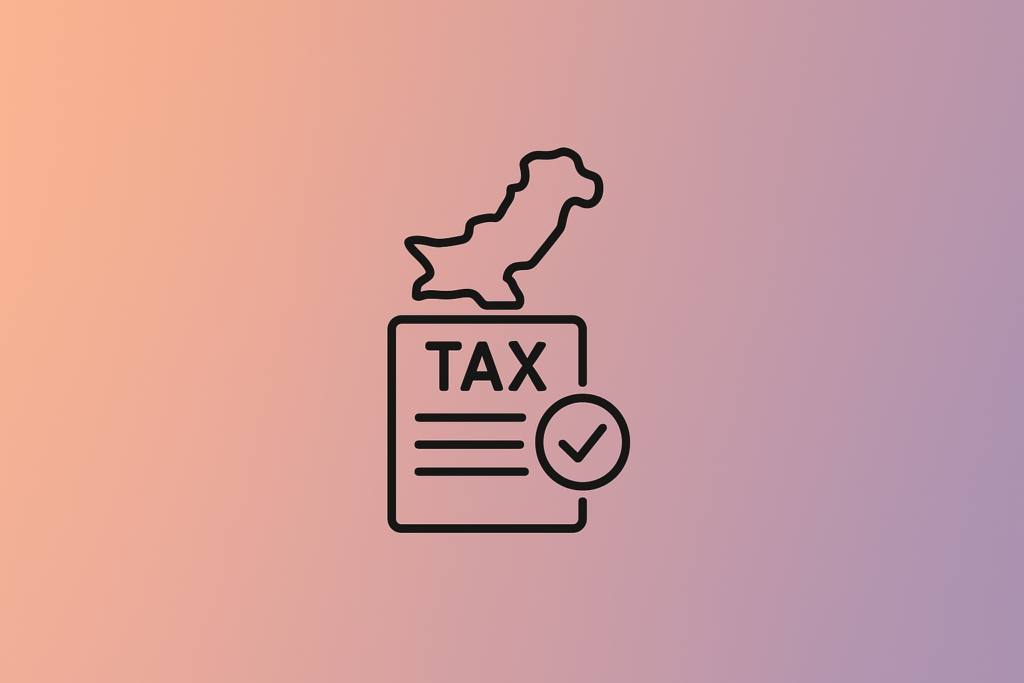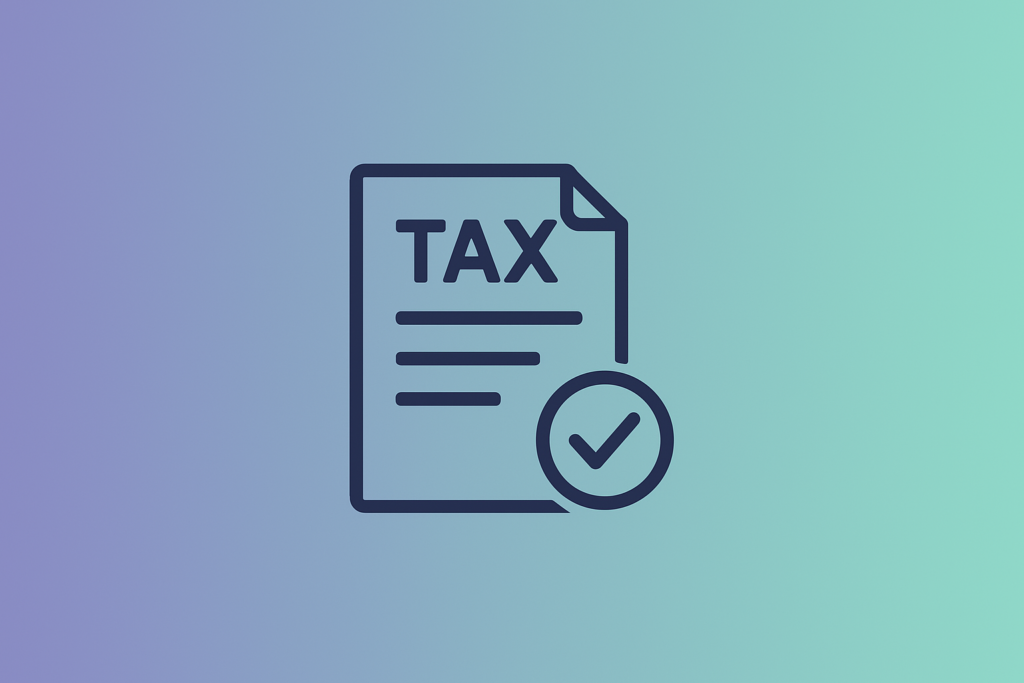Hi, I’m Shahzad Ahmad Mirza.
I’ve spent the past 20+ years helping individuals, freelancers, and business owners across Pakistan file their taxes properly, stay compliant, and most importantly — avoid unnecessary penalties. And I can tell you with full confidence: most tax issues don’t come from fraud — they come from simple mistakes.
The kind of mistakes that can cost you your spot on the Active Taxpayers List (ATL). Or delay your tax refund for months. Or worse — trigger an audit.
So today, I’m going to walk you through the most common tax mistakes people make in Pakistan, how to fix them, and how to make sure you never fall into these traps again.
Let’s make sure you get your tax game right.
1. Not Filing Your Tax Return at All
Let’s start with the most damaging one.
Every year, thousands of eligible taxpayers in Pakistan don’t file at all — sometimes because they think their employer deducted their tax, or because they believe they don’t earn “enough” to matter.
Big mistake.
According to the FBR guidelines, you must file if:
- You earn over Rs. 600,000 annually (for salaried individuals)
- You own property, a vehicle, or have a bank account
- You’re receiving foreign income or freelance payments
- You want to be on the ATL and benefit from reduced tax rates
And let me be clear: not filing your return doesn’t make you invisible. It makes you non-compliant, and that comes with penalties up to Rs. 50,000 under Section 182 of the Income Tax Ordinance.
Solution: File your return every year — even if it’s a “zero return.” Use the IRIS portal and make sure to file your Wealth Statement too (we’ll talk about that shortly).
2. Filing Without Submitting a Wealth Statement
This one’s sneaky — and I’ve seen even smart professionals miss it.
In Pakistan, filing your income tax return alone is not enough. You must also submit your wealth statement, especially if you own assets or earn beyond the minimum taxable income.
It’s not optional. It’s legally required.
Filing just the return without the statement of assets and liabilities can lead to your return being treated as incomplete, which means you’re effectively not a filer — and you lose ATL benefits.
Solution: When filing on the IRIS system, complete both the “Income Tax Return” and the “Wealth Statement” sections. This includes details of:
- Your bank balances
- Vehicles
- Property
- Gold or other personal assets
I personally recommend reviewing last year’s submission and keeping a running asset log throughout the year. It makes this step 10x easier.
3. Using Incorrect Personal or Contact Details
This sounds basic, but trust me — it’s one of the top reasons for delayed refunds and blocked NTN registrations.
Common errors include:
- Wrong CNIC entry (even a single digit)
- Misspelled name
- Outdated email or mobile number
- Mobile number not linked to CNIC in NADRA records
And here’s the issue: if your mobile number isn’t PTA-verified and tied to your CNIC, you won’t receive the FBR login code or verification updates.
Solution: Before anything, verify your CNIC and mobile number status with NADRA. Also, use a Gmail or trusted domain email that you actively check.
This will ensure you receive NTN confirmations, IRIS alerts, and any notices from FBR without delay.
4. Misreporting or Underreporting Income
This is a serious one.
Some people think they’re saving money by underreporting their income or not mentioning freelance earnings, rent from property, or investment gains.
But FBR is way smarter now than it used to be. They’ve integrated with NADRA, banks, property registrars, and even mobile wallets.
So if your declared income doesn’t match your lifestyle or financial activity, FBR will know.
I’ve personally handled cases where someone declared Rs. 800,000 annual income — but owned two cars, a DHA plot, and made Rs. 3 million in bank deposits. 🚩
Solution: Be transparent. Declare all income streams:
- Salary
- Freelance and foreign remittances
- Rental income
- Business profits
- Investment and dividend income
And yes, declare even non-taxable foreign income, so you can explain your bank deposits if asked.
5. Claiming Deductions You’re Not Eligible For
Everyone loves tax deductions. And yes — Pakistan does allow deductions on:
- Zakat
- Charitable donations to approved institutions
- Tuition fees for dependents
- Contributions to pension schemes
- Life insurance premiums
But there’s a catch: you can’t just claim anything randomly. The donation must be to an approved organization listed by FBR. The pension plan must be through a licensed provider. Tuition must be paid via traceable banking channels.
If you claim deductions without evidence or eligibility, you risk a rejection or even penalty.
Solution: Only claim deductions you can prove — and keep proper receipts or certificates. You can verify approved donation institutions on the FBR donations list.
6. Not Reconciling Bank Deposits With Declared Income
This one has become a major audit trigger in recent years.
Let’s say you declared Rs. 1,200,000 income. But FBR sees Rs. 3,800,000 in your bank deposits for the year — they’ll ask where the rest came from.
It might be legit — remittances, family gifts, etc. But if you didn’t declare it, it raises suspicion.
FBR now uses tools like AIS (Annual Information Statement) and bank profiling to cross-check your income with actual activity.
Solution: Before filing, download your bank statements, total your annual credits, and compare them with your declared income. If there’s a mismatch, be ready to explain with documentation.
Better yet — consult a tax professional. This is where experience can save you time, stress, and in some cases, an FBR audit.
7. Filing After the Deadline
This is where I see panic every year: IRIS portal crashes, servers freeze, and people are scrambling at the last minute.
The tax deadline in Pakistan is usually September 30th, unless extended. And while late submissions are allowed under Section 119, they can disqualify you from ATL and result in automatic penalties.
Solution: Don’t wait for the last date. I tell every client: file at least 2 weeks in advance. Not only will you avoid portal issues, but you’ll also have time to revise if needed.
And if you miss the deadline? File anyway. Late is better than never — but earlier is always best.
8. Failing to Deduct or Deposit Withholding Tax
If you run a business or work with vendors, contractors, or employees, you’re likely obligated to deduct withholding tax from payments you make.
This includes:
- Payments to suppliers or service providers
- Rent paid to landlords
- Salaries paid to employees
- Contractor fees or consultancy payouts
Under Sections 149 to 153 of the Income Tax Ordinance, you must deduct the appropriate withholding tax, deposit it with FBR, and file a withholding statement. But many businesses skip this or delay the deposit — and that’s where penalties stack up.
For example, if you’re paying a contractor and don’t deduct the required tax (say 10%), both you and the contractor can face inquiries. Not to mention, you can’t claim the expense as deductible if you didn’t withhold tax properly.
Solution: Use the Withholding Tax Rates Schedule from FBR to calculate correct rates for each category. Implement a system where tax is deducted before any payment is made, and file your monthly and annual statements using IRIS.
If you’re unsure about the category or rate, consult your tax advisor — it’s not worth guessing.
9. Freelancers Not Declaring Foreign Income
This is one I see all the time — especially among freelancers and remote workers earning through Upwork, Fiverr, or getting payments via Payoneer and Wise.
Many assume that if the income is earned abroad, it doesn’t need to be declared.
That’s incorrect.
Even though foreign remittances sent through official banking channels may be exempt from tax under Section 111(4), you are still legally required to declare this income in your annual return. Failing to do so creates a gap between your bank inflows and declared income — and that’s when FBR steps in.
Solution: Always declare your freelance income in the correct section of your tax return. If it qualifies for exemption under foreign remittance rules, claim it — but never skip it.
Use your bank statement, Payoneer export report, or inward remittance slips as proof. If needed, consult a tax expert to structure your income properly under a sole proprietorship or business head.
10. Not Keeping Supporting Documents
Think you’re done after filing your return? Not quite.
Under Section 174 of the Income Tax Ordinance, you are legally obligated to maintain tax-related records for at least 6 years. These documents are your only line of defense in case FBR questions your return or selects you for audit.
You should safely store:
- Salary certificates or employer tax deduction letters
- Bank statements for the entire financial year
- Receipts for rent, education, medical, or zakat deductions
- Invoices for business or freelance income
- Donation certificates from FBR-approved institutions
Solution: Digitize everything. I advise my clients to scan and back up all tax-related documents to Google Drive, Dropbox, or secure local storage with folders for each tax year. It saves your skin when FBR comes knocking.
11. Misusing Filer Status for Others
Some people try to “help” others by letting them use their filer status — like buying a car or registering a property under their name to save on withholding tax.
I’ve seen cases where someone bought 3 cars and 2 plots “for their cousin,” only to end up with a tax liability they never expected.
If your CNIC or tax profile is used in transactions, you are legally accountable for the asset and related taxes — even if someone else paid for it.
Solution: Never allow your filer identity to be used by others unless you’re fully involved in the transaction. And if you do own something — make sure it’s reflected properly in your wealth statement.
The FBR ATL status is not a free pass — it’s a legal and financial responsibility.
12. Not Reviewing Your Tax Profile Annually
Here’s a mistake even experienced taxpayers make: they file their return and forget it.
But your income profile evolves. Maybe you added a side hustle. Bought an apartment. Switched jobs. Started a business.
If your return doesn’t reflect those changes, FBR may consider it incomplete — or worse, misleading.
Solution: Set aside time once a year to review your tax profile:
- Is your NTN status correct?
- Are all income sources declared?
- Are you claiming the right deductions?
- Do your declared assets match what’s in your wealth statement?
If anything’s changed — update it before filing.
13. Ignoring FBR Notices and Audit Calls
Many people panic when they receive an FBR email or message… and do nothing.
That’s one of the worst things you can do.
If you ignore an FBR notice under Section 122 (amendment of assessment) or Section 176 (record request), you’re putting yourself at risk of forced assessments, penalties, or freezing of bank accounts.
And trust me — FBR is using automated data now. If your profile gets selected for audit, it’s not personal. But ignoring it makes it worse.
Solution: If you receive an FBR notice, respond immediately. You can check the status of any outstanding notices by logging into your IRIS dashboard.
If you’re unsure how to respond, hire a qualified tax lawyer or advisor who can respond within the legal timeframe and guide you through the documentation process.
Final Thoughts: Filing Correctly is Filing Smart
Look, I get it.
Tax season isn’t fun. And the FBR system isn’t exactly user-friendly. But here’s the truth I’ve seen over 23 years in this space:
Mistakes cost money. Avoiding them builds wealth.
The moment you file correctly, declare transparently, and maintain your records — you’re not just a filer. You’re a financially responsible citizen with access to:
- Tax refunds
- Government loans and subsidies
- International visas
- Business opportunities
- Peace of mind
So don’t let confusion or shortcuts ruin your tax profile.
Start early. File honestly. Get help when needed.
The best time to fix your tax mistakes is now — before FBR finds them for you.



